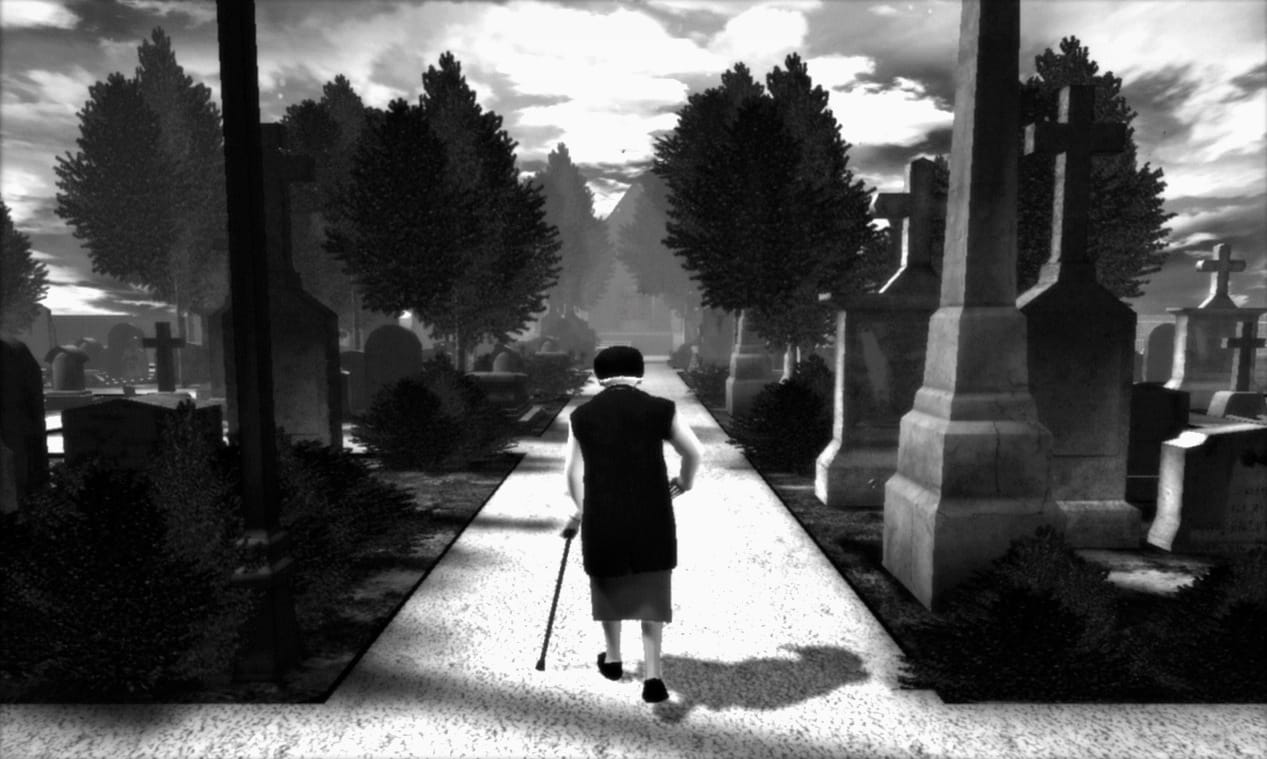After 12 years of making artistic games, Tale of Tales has made the heartbreaking announcement that it will no longer be making videogames from now on. Not ones that will be sold with a price, at least. The studio is comprised of married couple Auriea Harvey and Michaël Samyn who met each other on the internet in 1999 and haven’t departed since. They were digital artists then and remain so now. But, going forward, they’ll be looking at other ways to create that don’t necessarily fit within the format of videogames.
“this intense feeling of disappointment”
In making the announcement, the pair admitted that their studio has “always teetered on the edge of sustainability.” Previous projects the couple made were possible due to Belgian art grants and commercial revenue they had earned over the years. As the grants dried up, they found themselves turning to crowdfunding for what turned out to be their last game. Sunset—the beautiful story of a house maid affecting a civil war from afar—has been a commercial failure with it having sold only 4,000 copies in its first month. That is far from from the figure required to recuperate the costs of production and paying for external marketing efforts.
“It’s hard to deal with this intense feeling of disappointment in a context of glowing reviews and compliments and encouragement from players,” Tale of Tales writes. “A small group of people clearly deeply appreciates what we do and we curse the economic system that doesn’t allow us to be pleased with that.”

This disappointment is understandable considering that Auriea and Michaël abandoned their more “extreme artistic ambitions” to attempt a more accessible game and, it was hoped, one that would reach a wider audience. As part of this, they drew up a new manifesto titled “The Beautiful Art Program” (which I interviewed them about last year), hoping to present a friendlier face that would continue to inspire more and more people. This was deemed necessary as the studio’s image and its games had proven to divide those who play games.
This really kicked off in 2009 with the controversial arrival of The Graveyard. It’s a short black-and-white game that has you play as an old woman as she slowly walks through a graveyard, walking stick in hand, before sitting to rest on a bench where she then dies. The game became the center of arguments for what qualifies as a videogame, whether games can be art, and the commercial worth of art games (not a lot, so it seems). Tale of Tales stood up against the negativity at this time and didn’t compromise on its vision, continuing to make games for another six years.
12 years of pushing the boundaries of art and videogames
But the legacy of Tale of Tales goes far beyond this and much more of it is positive than it is negative. The studio’s first finished game project was The Endless Forest, which placed you as a deer-human hybrid in a multiplayer world where you could only interact with other people through playful gestures. It would go on to inspire thatgamecompany’s Journey among many others. Then there was the much-loved The Path: a horror story based on the fairy tale Little Red Riding Hood that relied on player curiosity to unravel its mystical plot. It’s one of the most cited influences among makers of art and exploration games like The Stanley Parable, Dear Esther, and Gone Home. And despite the negative reaction from many, The Graveyard actually went on to inspire set-pieces in bigger games such as the Uncharted series.
These are only some of Tales of Tales’s games: there’s another based on the stage play Salome by Oscar Wilde, an award-winning touch-based game of sex and spirituality, and yet another about the strange interactions of cyberspace, and more. Many of these games star women and girls, include people of color, and engage with art and ideas outside of the videogame sphere. Hopefully, the last 12 years of pushing the boundaries of art and videogames by Auriea and Michaël will continue to inspire artists for many more years to come. Still, their own efforts are far from over. “Creativity still burns wildly in our hearts,” they write, and hope to be able to continue experimenting with that passion.
You can support Auriea’s visual art on Patreon. You can also support Michaël’s writing on Patreon. More on Tale of Tales and their projects can be found on its website.





